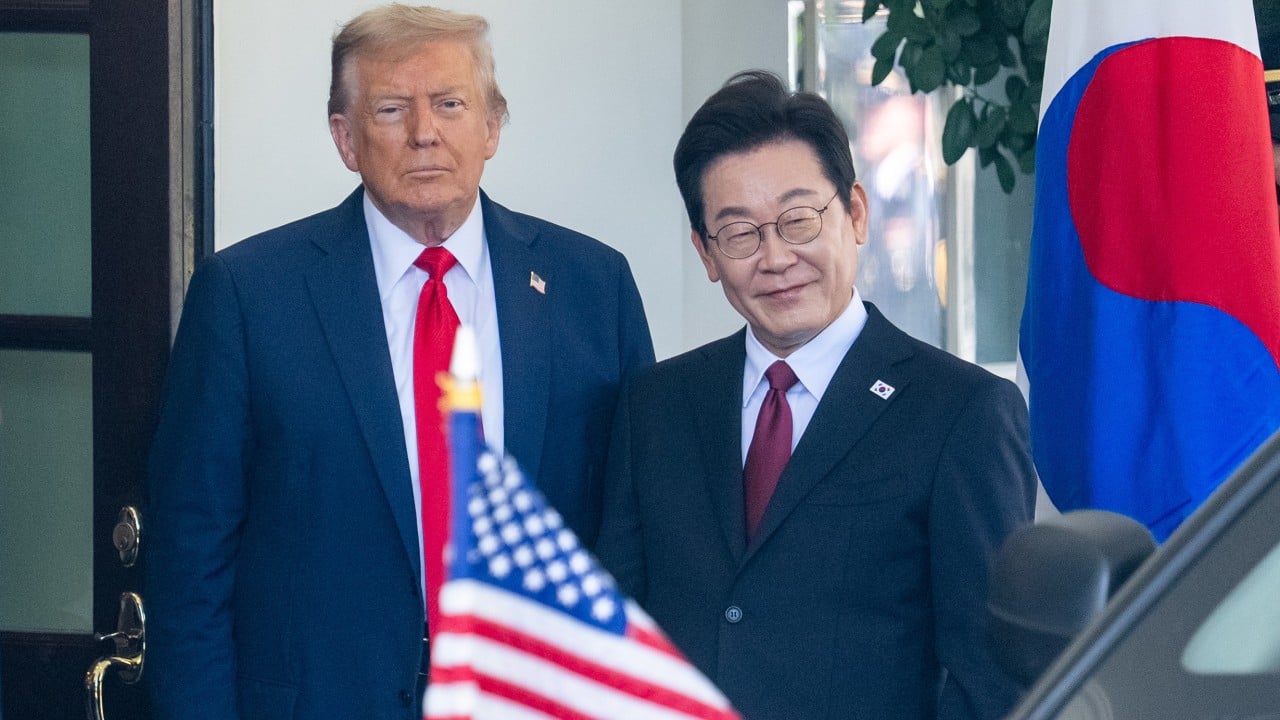South Korea’s new president has signalled reluctance to give ground to US President Donald Trump on the role of US forces in Korea in relation to Taiwan, but experts say he may be continually pushed to take a clearer stance in the future.
Advertisement
On Sunday, South Korean President Lee Jae-myung told reporters on his flight to Washington for an inaugural summit with Trump that it was difficult to agree to an American demand for strategic flexibility of US Forces Korea (USFK).
Lee, who became president in June, said “it is true” the US had demanded “flexibility” of the USFK, but “this is not an issue we can easily agree with”.
“Instead, discussions on a future-oriented strategic transformation of USFK are necessary from our perspective as well,” Lee said.
Kang Jun-young, a professor of Chinese studies at Hankuk University of Foreign Studies in Seoul, said that while the South Korean government agreed with the broader framework of “modernising” the alliance, it was also concerned about the prospect of a military and strategic power vacuum given the unresolved North Korea nuclear issue and threat from the north.
Advertisement
“This is why they expressed their difficulty in strategically operating USFK…Of course USFK is the US military, and so the US can use it as it pleases. However, Seoul is saying that the security situation on the Korean peninsula is also dire,” Kang said.

